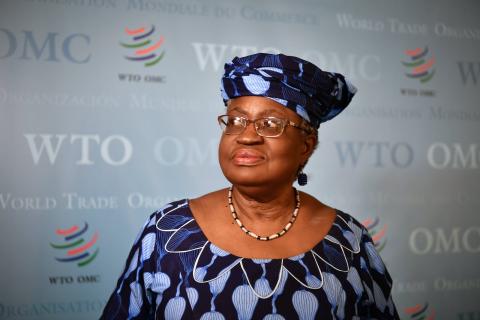Ken Ward is to be congratulated for a straight forward and sober analysis of the Australia-Indonesia relationship. In his own matter of fact style, Ken takes us through a complex relationship and provides unique understanding and insight.

His core point is that the Australia-Indonesia relationship has been, and will always be, punctuated by varying degrees of crisis. He argues that is something we just have to get used to and we should reset our expectations accordingly. In Ken's view, the best governments can hope to do is better understand Indonesia's point of view. Policy settings and the political narrative can be managed with those sensitivities in mind, rather than responding to a media and/or opposition driven narrative.
As Hugh White has argued in this debate, this advice is sensible enough, particularly if we are happy with the status quo and simply want to manage the current relationship more effectively. Although Hugh argues policy that is good today might not be fit for the future because the regional strategic environment is changing.
But should we even be happy with how the relationship is today? I would argue we should not. In fact our relationship is a long way short of where it ought to be in today's environment, let alone where we should aspire taking it. [fold]
The Australia-Indonesia relationship has never been more important. Nearly 70 years after Indonesia achieved independence from Dutch rule, we still don't really understand them. This was no more apparent than in the recent Lowy Institute Poll that found a staggering 66% of Australians do not regard Indonesia as a democracy, 15 years on from President Soeharto standing down. And just 42% said they 'know' of President Joko Widodo. With the Lowy thermometer hitting an 8 year low at 46 degrees, Australians put Indonesia in the same basket as Russia and Egypt.
That is not the kind of place you would like to see our closest neighbour occupy in our national psyche.
GDP growth below 3% is the new normal for Australia, yet we have on our doorstep an economy and market of 250 million people. Half of Indonesia's citizens are under 30 years old and the middle class is expected to exceed 140 million inside the next decade. Indonesia, already the 9th largest economy in the world in purchasing power parity terms, could become the 5th largest in the next 15 years according to PwC modelling. In 2030, the Indonesian economy could be three times bigger than ours.
Of course, implementing structural reforms, fixing infrastructure and combating corruption are very real challenges to Indonesia achieving this potential. Australia should absolutely be Indonesia's preferred partner to help solve these challenges. But we are not. One of the reasons for that is we just don't have the deep commercial ties that build understanding and trust. Our trade and investment relationship is way below par. Indonesia sits outside our top 10 partners in two-way trade and receives less than 2% of our stock of foreign direct investment.
A healthy and vibrant Indonesia is most importantly a thing good for Indonesians. But it's also good for Australia. Good in economic terms and good for our shared security interests.
There is plenty of room for Australia in Indonesia, but we have to be more ambitious in how we think about the relationship. A bipartisan approach and greater respect for the Indonesian view point is needed. Diplomacy behind closed doors and out of the media spotlight is a far more effective way to navigate these issues.
But if we want to be more than just bystanders we will have to seriously rethink our engagement model. Indonesians do not get up in the morning and look south for guidance. They look north, as we do. China, Japan, Korea, the US and Europeans are well ahead of us.
We can choose to continue down a path punctuated by the recurring crises that Ken so compellingly argues are inevitable. The alternative is to double-down on our investment. This will require courage and a healthy measure of leadership if we are to reset the relationship for the next 25 years. We can and must do better – we simply can't afford not to.
Photo courtesy of Flickr user Tony Abbott.
